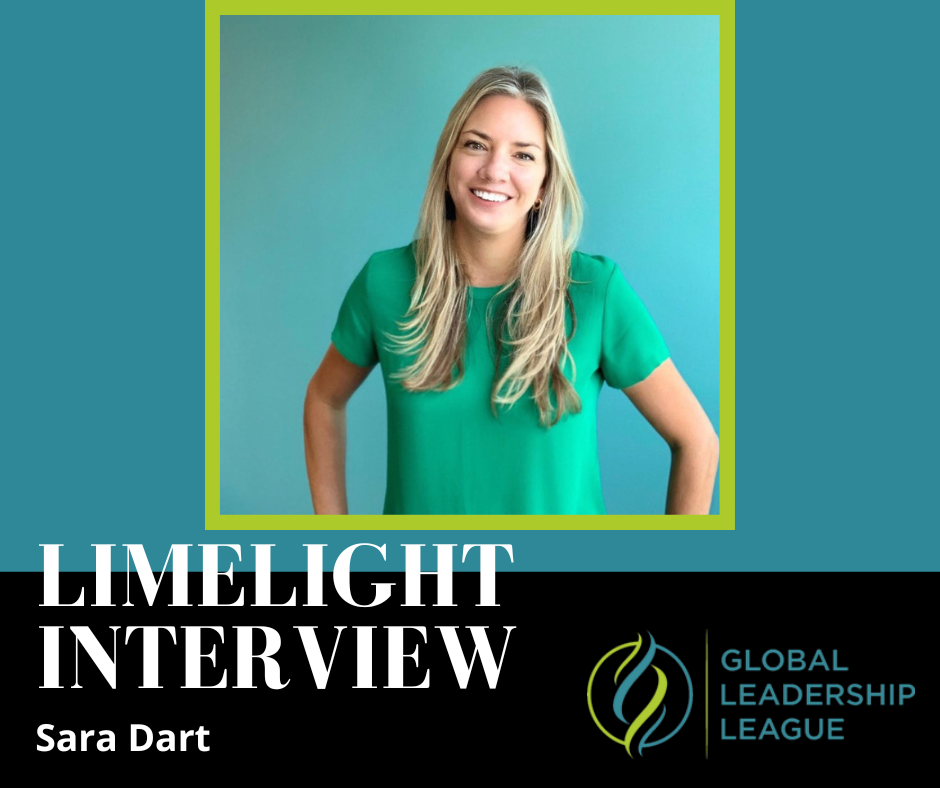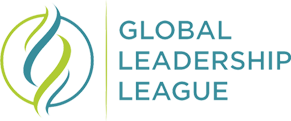 LIMELIGHT INTERVIEW WITH SARA DART
LIMELIGHT INTERVIEW WITH SARA DART
Our next LimeLight interview introduces us to Sara Dart, Senior Vice President of Education in Ireland. Sara's interview stands out not only for its informative content but also for the delightful sense of humor she brings to the conversation. From lessons learned in bartending, to finding “your thing”, and how literature can help us better understand other cultures, Sara shares some wonderful insights, and learning moments from her career in international education. Her passion for this industry is evident and we are excited to share her story. Read on to learn more about Sara Dart.
1. What is your current title, and where do you work?
Senior Vice President, Education in Ireland
2. How did you learn about your current position? (Ex. Networking, Promotion, External Job Posting)
I was recruited for the role on LinkedIn.
3. What sparked your interest in working in international education?
I was a little bit lost for a time after finishing my undergraduate degree, but I kept returning to this thought that the semester I spent in El Salvador was the most important thing I'd ever done, because of how much it had challenged and changed me. I realized that I could make a career out of helping other students have similarly transformative experiences, so I went back to pursue a graduate degree in Higher Education.
4. What was your first job in international education?
I started my career as a Study Abroad Advisor in the International Learning Opportunities office at Boise State University. Corrine Henke was kind enough to take a chance on someone who basically had no international education experience and who answered behavioral interview questions with anecdotes from her bartending job. It was an amazing place to start out - we were a small office, which meant I was able to get experience in everything from marketing to scholarships to budgets - and Corrine taught me so much about working in this field.
5. Tell us about your first international experience, either traveling or working abroad.
I had the privilege of spending a semester at the Casa de la Solidaridad program in El Salvador. I took classes on the campus of the UCA (Universidad Centroamericana) and
spent two days a week learning from the wonderful women at a sewing cooperative in the community of Mariona. It was a completely transformative experience that changed the way I saw the world and my place in it, and inspired me to pursue a career in international education.
6. Describe a typical day/week at the office at your current job.
I'm pretty sure there's no such thing as a typical week in this job. A week for me might involve representing Ireland at a conference, our team hosting a visiting government minister, or leading a site visit of study abroad professionals or high school counselors across the island. If it's a quieter week, I'm probably planning for one of those events or doing a bit of work on partnership development between US and Irish institutions.
7. What do you enjoy the most about your job?
I'm not Irish, but the vast majority of my colleagues are. For me, this means that every day is an intercultural learning experience, whether it's how to pronounce a particularly difficult Irish word, an explanation of the nuances of the Irish political system, or a lesson on how and why the DEI landscape and context in Ireland is different from the US. Since leaving Boise State, I've missed being part of the academic life of a campus, and this aspect of my current role really feeds the lifelong learner in me.
8. What is the most challenging aspect of your job?
Deciding what to say no to. A role like this is vast, encompassing so many different areas and activities, that if I had twice as many hours in the day, I could easily fill them all. Understanding that I can't do everything, and have to be a bit selective in my focus has definitely been a learning curve for me in this role.
9. What has working in international education taught you about yourself and your own culture?
It has definitely taught me that I'm not as light of a packer as I aspire to be! On a serious note, working in this field has shown me just how many ways there are to live in the world, and that anyone who thinks their way is the only way is terribly narrow-minded. I believe this is why widening access to international experiences is so important, especially in the face of the increasing division, unrest, and inequality that seem to be filling our newsfeeds. If people have left home and lived somewhere else, among people whose lived experiences are different from their own, it is far more difficult for the rhetoric of hate and of malicious othering to find a foothold.
10. Do you have a career mentor or someone that you consult with about career growth?
I'm fortunate to have had some tremendous mentors over the years, including Corrine, who I mentioned above. During my years at Boise State, I also got to know the Career
Center team, and in particular, Associate Director Alex Gutierrez. Alex has reviewed more versions of my resumes and cover letters than I can count. He believed in me enough to agree to collaborate on my first-ever conference presentation and is someone whose advice I always seek when considering career decisions. Later, while at ISA/Worldstrides, I had the great fortune to work alongside Malaika Serrano, now VP of DEIB at Guild Education. Malaika taught me so much, including how to harness the power of LinkedIn, how to advocate for myself, and most importantly, that when a door opens for you, you reach your hand back and pull others forward with you. When I'm faced with a difficult professional decision, my first reaction is to ask myself, "What would Malaika do here?"
11. Describe a moment in your career that you consider your greatest achievement.
The hardest thing I've ever done as a professional was writing a chapter in NAFSA's recent Guide to Education Abroad - grad school was the last time I wrote anything that substantial, and it turned out, I was a bit out of practice! However, the thing I'm most proud of is the development of the Inclusive Ireland Scholarships, which are now administered by the Fund for Education Abroad. When I joined Education in Ireland, one of my key priorities was to change both the narrative and the reality of who studies abroad in Ireland. Historically (and stereotypically) that's been heritage-seeking students from Irish-American backgrounds, and we wanted to send the message that Ireland truly welcomes and supports students of all backgrounds, especially those who may be historically underrepresented in study abroad. FEA has been a tremendous collaborator in this work, and I'm incredibly appreciative of Angela Schaffer and her team for their partnership and the impact that it's had on our work at Education in Ireland.
12. How has COVID-19 impacted your work life?
I started this role in April 2020. I'd never been to Ireland and I'd never met any of my colleagues in person. So, I had to figure out not only how to get to know Ireland from 3000 miles away but also figure out what my job meant when students weren't moving. Fortunately, the Irish reputation for being friendly and welcoming couldn't be more accurate, which made the former much easier. As for the latter, I focused on keeping Ireland top of mind so that when mobility resumed, study abroad teams would consider us a safe and attractive destination for students. I'm proud to say that following a very tough few years, we're now nearly back to pre-pandemic numbers!
13. If you are working from home, has that adjustment been difficult or enjoyable?
My job is hybrid, so I'm office two days a week. I'm part of a great team, and being able to see them a few days a week is definitely a plus.
14. What type of things are you doing to balance your mental health?
I read a lot. Mystery thrillers are my escape, especially those with an international setting. Actually, one of the ways I got to know Ireland before I could actually travel there was by reading books by Irish authors.
15. What is the best advice you can give to other global educators right now?
Anyone who has heard me present recently has probably heard me preach the importance of finding an area within the field, and making that "your thing". Find something that interests you, learn as much as you can about it, join a related group, present about it, post about it on LinkedIn, really make it yours. I've had a few "things" over the years - the intersection of study abroad and career development, marketing to GenZ - and these days my things are Ireland, obviously, and career development in international education. Your thing can change. It's a way of distinguishing yourself in the field, a path to finding a community of like-minded colleagues within international education, and a way of staying passionate and energized about the work.
 The mission of the Global Leadership League is to ignite change across the global education field by empowering, connecting, and training leaders. We invite you to reach out to us here or learn more about becoming a member.
The mission of the Global Leadership League is to ignite change across the global education field by empowering, connecting, and training leaders. We invite you to reach out to us here or learn more about becoming a member.
